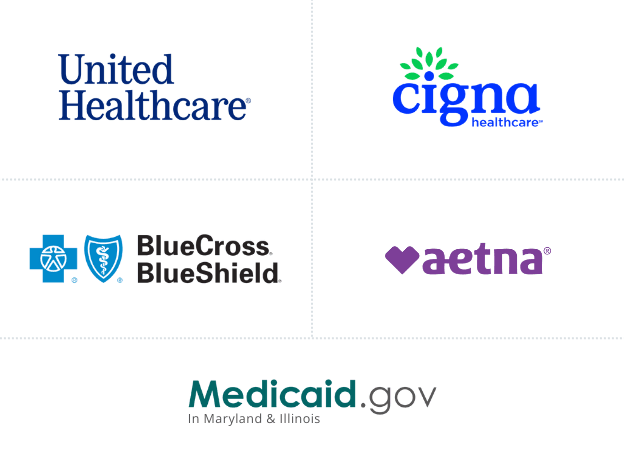
Cost
How much does it cost?
Reproductive care should be accessible to all who want it — cost should never be a reason you can’t get care with carafem. We partner with abortion funds to offer financial assistance to those who qualify, and accept health insurance for most services.
carafem pricing & out of pocket costs
We understand that out-of-pocket costs are a big concern and are important in your decision. You can expect to pay sliding scale fees (most pay $225 or less) if you choose online care or $0-475 for an abortion pill appointment in one of our health centers. The in-office procedure costs $550.
Additionally, our staff will work with you to check with your insurance company and abortion funds to see if they will cover part or all of your costs — just call us 24 hours in advance of your appointment to get the process rolling.
Online Care
Online abortion costs
Convenient, discreet abortion care from home with carafem’s online abortion care. Available in these states with 24/7 support.
Type of care | Cost |
|---|---|
Immediate evaluation | $0-399 |
Video Visit | $0-249 |
Abortion pills for future use | $299-399 |
Atlanta, GA
Atlanta abortion costs
Our Atlanta health center offers compassionate in-person abortion care in a private, supportive setting. Same or next-day appointments often available.
Type of care | Cost |
|---|---|
In-office abortion pill appointment | $475 |
In-office procedure | $550 |
Chicago
Chicago abortion costs
Located just outside Chicago, our health center provides in-office abortion care that’s quick, respectful, and tailored to your needs.
Type of care | Cost |
|---|---|
In-office abortion pill appointment | $399 |
In-office abortion pill appointment with ultrasound | $475 |
In-office procedure | $550 |
Washington, DC
Washington DC abortion costs
In the Washington DC area, carafem delivers personalized abortion care in a welcoming environment, with short visits and transparent pricing.
Type of care | Cost |
|---|---|
In-office abortion pill appointment | $399 |
In-office abortion pill appointment with ultrasound | $450 |
In-office procedure | $550 |
Birth Control
Birth control options & costs
A birth control appointment usually takes less than an hour. You’ll have time to talk with your provider, review educational materials, and choose the option that fits your needs.
You don’t need an appointment at one of our clinics to pick up condoms or emergency contraception (EC). For birth control pills, the shot, or an IUD/IUC insertion, you’ll need to schedule a visit and bring a photo ID.
To schedule an appointment, Just call (855) SAY-CARA.
Appointment Fee: $50 one-time fee + cost of your contraception
Type of birth control | Cost |
|---|---|
Condoms | $3 for 6 |
Birth control pills | $15 per month |
Depo Provera (DMPA) shot | $100 per injection |
Emergency contraception | $25 per pack |
Birth control implant | Fees vary (insurance may cover) |
IUD (interuterine device) | Fees vary (insurance may cover) |
Financial Aid
Financial help is available — some clients pay $0
Abortion care should be accessible to all who want it — cost should never be a reason you can’t get an abortion with carafem. We partner with abortion funds to offer financial assistance to those who qualify, and accept health insurance for in-person appointments.
If you’re worried about how to pay, we’re here to help.
Call us at (855) SAY-CARA. We’ll work with you to make sure you get the compassionate, high-quality care you deserve.

Insurance
We accept insurance in our health centers
If you visit one of our physical health centers in Atlanta, Chicago or Washington DC we are able to accept insurance. To make your visit as smooth as possible, we kindly ask that you share your insurance details with us at least 24 business hours before your appointment. This gives our team enough time to check your benefits and help you understand what’s covered.
For online care: We can't accept insurance for online care, but we do help connect you with financial assistance depending on eligibility. If you have questions about your coverage and financial assistance, give us a call at (855) SAY-CARA.
Please note: An insurance verification is not a guarantee of benefits. We recommend checking with your insurance provider before your visit to confirm coverage.
Plans Accepted
Illinois & Maryland: Medicaid

Frequently asked questions
Abortion pills range from $0–$475, depending on the type of care you choose — whether that's online care, advance provision (pills for future use), or an in-person visit at one of our health centers.
Financial assistance is available for those who qualify, and we work closely with abortion funds to make sure cost is never a barrier to getting the care you need.
The abortion pill is actually a combination of two medications — mifepristone and misoprostol — taken in sequence. In the U.S., this method is most commonly used during the first 12 weeks of pregnancy.
The first pill, mifepristone, blocks the hormone needed for a pregnancy to continue. Most people take this pill in our health center, though it can sometimes be taken at home. Some people may notice light bleeding afterward, but that’s not very common.
The second pill, misoprostol, is taken at home within 72 hours of the first. It causes cramping and bleeding as your body passes the pregnancy — similar to a miscarriage. Most people start to feel cramping and see bleeding within an hour of taking it, though it can sometimes take longer.
You may also experience nausea, chills, diarrhea, or flu-like symptoms — that’s all normal. It’s a lot like a very heavy, crampy period. We recommend having thick maxi pads, a heating pad, and some quiet time set aside. We also provide anti-nausea and pain medications to help you stay as comfortable as possible.
For most, the heaviest cramping and bleeding lasts 3–4 hours, with lighter bleeding that may continue until your next period, usually 4–6 weeks later.
The abortion pill is a safe and highly effective option for ending an early pregnancy. Research shows that when used correctly, medication abortion works about 98% of the time for pregnancies up to 10–12 weeks.
Most people pass the pregnancy within a few hours after taking the second medication (misoprostol), and symptoms like cramping and bleeding are usually strongest during this time. A small number of people (around 2–5%) may need a follow-up dose of medication or a simple in-office procedure to complete the abortion — and that’s normal and ok.
The abortion pill is very safe and has been used by millions of people worldwide for over 20 years. In the United States alone, it's been safely used by hundreds of thousands of people since it was approved by the FDA in 2000.
There’s no evidence that using the abortion pill affects your ability to get pregnant or carry a pregnancy in the future. When you're ready to have a baby, your fertility returns quickly — often within a few weeks.
Both are safe and effective options — and the best choice depends on what feels right for you.
The abortion pill (also called medication abortion) uses two FDA-approved medications to end a pregnancy and is typically available up to 12 weeks. You’ll take the first pill in a health center or at home, and the second at home within 0–72 hours. Cramping and bleeding usually begin a few hours after the second medication and feel similar to a heavy period. Many people like this option because it allows them to have their abortion in the privacy of their own space, on their own schedule.
A procedural abortion (sometimes called an in-office or aspiration abortion) takes place in a carafem health center with a supportive, licensed provider. The procedure itself takes about 5 minutes -- similar to the same amount of time as a pap test. Your provider uses a quiet, handheld suction device to gently empty the uterus—like releasing your period all at once. The full visit typically lasts under 90 minutes, depending on your needs. One key difference: with a procedure, you’ll leave the office no longer pregnant.
Yes — medical abortion and the abortion pill refer to the same process: using two FDA-approved medications (mifepristone and misoprostol) to safely end an early pregnancy. It’s a non-invasive option that can often be done at home.
